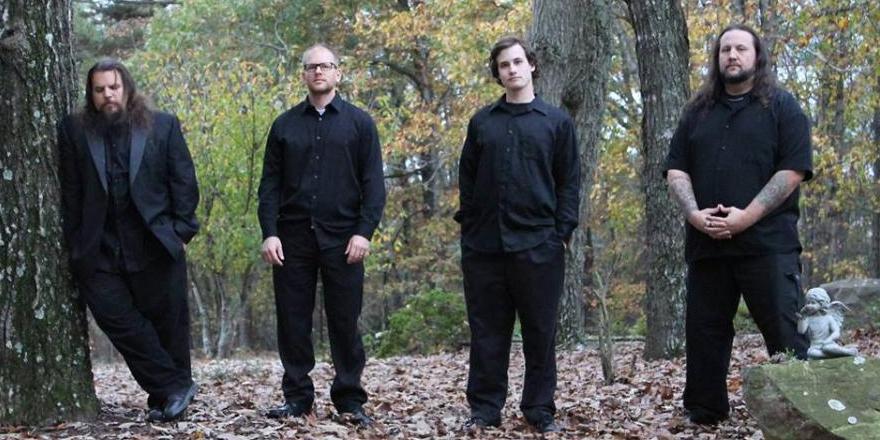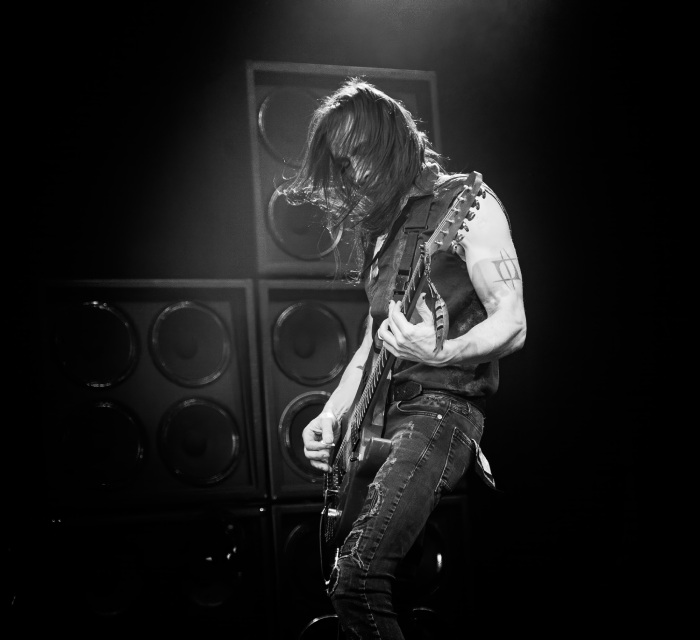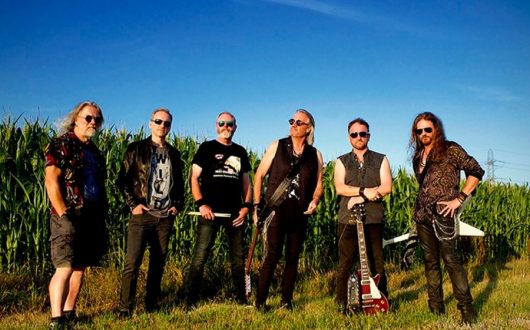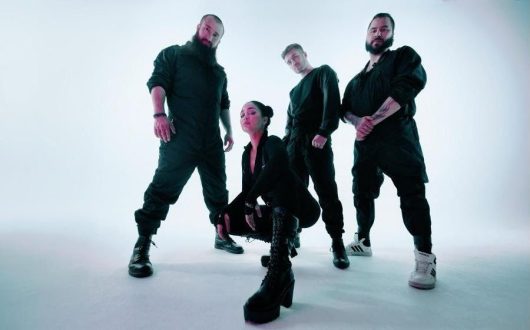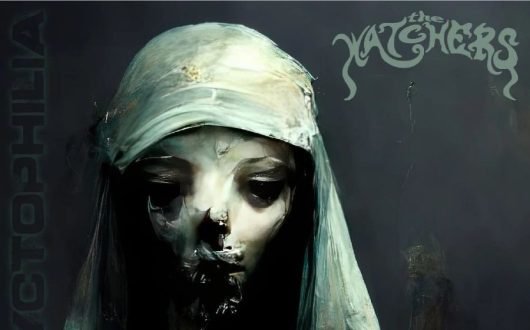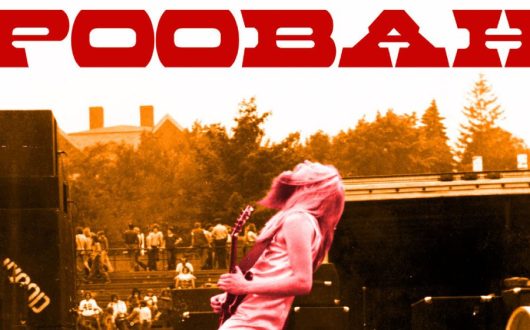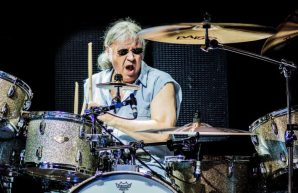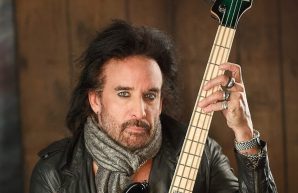Interview by: Chris Martin
Pictures Sourced from: The Reticent Facebook Page
MGM: What planted the seed of The Reticent? How did it come into existence?
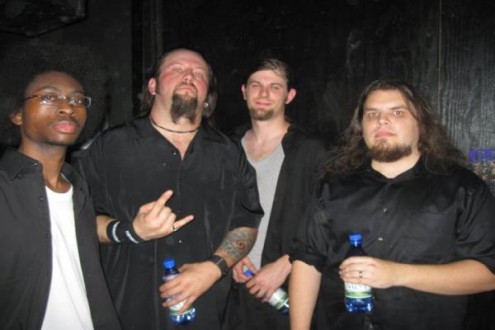
Source: The Reticent Facebook Page
Chris Hathcock: Originally, The Reticent was kind of an alter ego for me to employ while I was playing in two blackened death metal bands (Wehrwolfe and Torture Cell). Both of the acts were very brutal and intense which was a wonderful outlet for aggression but I felt like there were other things that needed to come out. I was wrestling with a lot of loss, sadness, and constant questions that death metal (despite my affection for it) was unable to quicken. So I started collecting these acoustic tunes I had been composing off and on for a few years and put them all together on an album I recorded in my bedroom which became the “Hymns For The Dejected” album. That shoddy little recording caught the attention of Jeremy Golden at Heaven & Hell Records who wanted to sign me and see where else I would go. So I put together a more coherent album centering loosely on a theme that would become “Amor Mortem Mei Erit” which was the first H&H Records release. The same year I released that record, Wehrwolfe and Torture Cell both decided to call it quits. I kept on for a while doing some acoustic shows as The Reticent (sometimes completely by myself other times with a bassist) but I eventually succumbed to discouragement and ended The Reticent. Then somehow, I don’t clearly recall how, I found that I had continued writing music even without an avenue for them. However, I found that now the songs were beginning to sound unlike things I had done before. They started to go in new directions. So I decided I wanted to restart the project and get a full band together so as to make this new sound for the band possible live. That material ended up becoming “Le Temps Detruit Tout”. Forgive me for the lengthy history channel special.
MGM:What is the purpose of playing all of the instruments on the albums?
Chris Hathcock: Well, at first it was simply pragmatic. I had the ability to play multiple instruments and it was difficult often to get competent, skilled players that would understand what I was hearing in my head. Yet, as I wrote more for the project, I found myself writing intensely revealing things about personal struggles or traumas I had had. This in turn lead me to putting that emotion and nuance into every part I would hear in my mind so I decided that my hand being in every instrument would allow me to best create that sense of personal and intimate revelation.
MGM: The albums started much mellower than they’ve progressed into. Is this intentional?
Chris Hathcock: Yes, I would say so. Insomuch as the band is not meant to dwell in one area only. The first two albums “Hymns” and “Amor” were very similar because I didn’t yet know what I wanted to do with this. As I continue to try to excavate the different sides and facets of emotion, I find that it is impossible to limit one’s palette in terms of musical color without limiting the expressive potential of the music itself. Take the idea of losing a loved one for instance. There are many sides to that experience besides just sadness. Many times there can be anger or resentment, there can be envy, there can be confusion or disillusionment, etc. As I reflected on what I felt was necessary to convey a complete emotion, the music had to evolve. So that’s what I’ve been attempting to do. Thus why the albums are sounding more and more different.
MGM: What prompted this direction in the beginning as well as the change?
Chris Hathcock: I think I preempted this question. Haha.
MGM: The Reticent is very progressive music, other than just being a fan of the style, is there a reason you have decided to work in this genre?
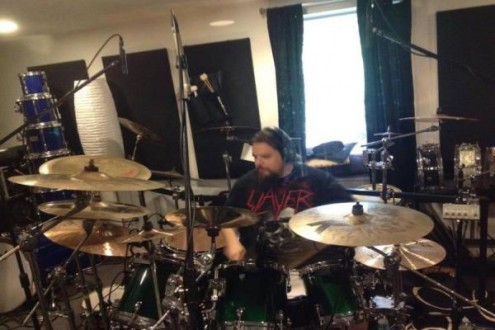
Source: The Reticent Facebook Page
Chris Hathcock: Like I mentioned earlier, I wanted a wide palette from which to paint. I don’t much label myself or my music as progressive because that in and of itself has developed norms, expectations, and clichés. So I didn’t so much decide to go into a prog realm as much as that’s just the moniker best associated with the music I’m writing. There’s nothing particularly special about what I write – I’m sure someone else has written the style I chose much better than me. I just felt like I had to tell my stories in very specific ways. Prog at the very least has the least amount of restrictions in terms of labeling your music.
MGM: Do you find it challenging, thus making it more gratifying to perform or do you simply write, and the prog just happens?
Chris Hathcock: It just happens. I listen to a huge variety of music and so I don’t often write with a specific song in mind. I don’t hear an Opeth song come on my iPod and say, “Oh man, I need to write a song like this one!” That would be me telling my story through an imitation of someone else, you know? Now it’d probably be better because bands that I’ve been compared to like Opeth and Tool are about 1,000 times better than I am, but I try to write more in a bubble so that it is more honest – at least in terms of my expression.
MGM: What is the writing process like for a Reticent album? The songs are so compelling, and each album the growth as a writer is so evident.
Chris Hathcock: It depends on the song honestly. As well as what it is I’m trying to express. For example, the song “Hurt” was written in my car after a very nasty confrontation with my significant other at the time. I heard the melody and began singing it to myself and, as soon as I got home, I recorded the idea which didn’t change when I went to the studio. For other more involved songs, it can often start that way but I try to see where the song is going and follow that through to the end. I don’t think I am always successful with that unfortunately. With the new album, “On The Eve Of A Goodbye”, I actually spent years (literally) on many of the songs and tried to weave melodic and harmonic motives that would appear throughout the songs. So as an idea became more refined it would occasionally have a domino effect on others in an attempt to maintain internal consistency. The writing process for the new album was, therefore, way more involved than the previous efforts where it was sufficient to feel the emotion, write it down, and record it. What I tried to do most recently was to create a single vision with a plethora of different idiosyncrasies and perspectives so in a weird way the new album is like one 73 minute song to me.
MGM: Obviously any song writer wants to strive to better themselves, how do you get yourself to write better than before?
Chris Hathcock: Well, I don’t know that I get any better but I suppose the positive side to that is that it was hard for me to get much worse. Haha. I don’t know. Professionally, I continually study music so I try rather diligently to incorporate that kind of refinement and understanding in my own writing.
MGM: Clearly you’re unable to play all the instruments live, how have you selected the current members of the live band? What do you look for in other musicians who are interpreting your songs?
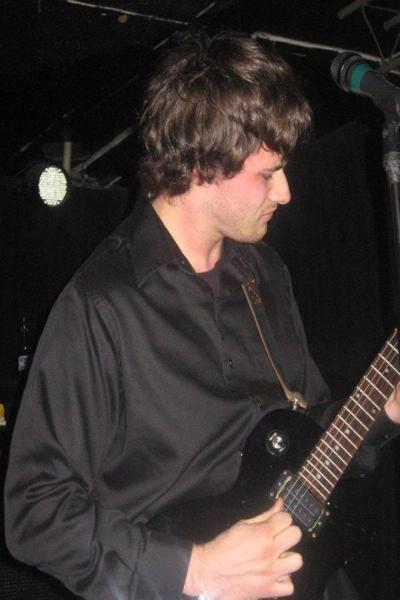
Source: The Reticent Facebook Page
Chris Hathcock: We’ve gone through a few members in the live band that is for sure. Cliff Stankiwiecz and I had played together in a prog rock band back in 2007-08 called ISO (which I have tried to restart literally ever since until I finally gave up in 2015) and he said that he really loved the material I wrote for The Reticent and that he’d love to play it. When I decided I was going to do something more with the project than acoustic stuff, I called him up and that was that. So that’s how we got together and we have remained ever since. We had a revolving door of guitarists for a little while and we’ve had a few drummers. The selection process was not really a selection process because it isn’t like folks were beating down my door to play in this square peg of a band. I just tried to find kindred spirits. People interested in doing something different and willing to see what the vision I had was. Everyone in the band right now believes in the band and believes in what I have been attempting to do. They understand what’s behind the songs and why they need to be played. They forgive me for my lack of talent and forge ahead anyway.
MGM: I have seen The Reticent a couple of times now and I’m was blown away at the intensity of the shows. Explain to our readers who may not have seen you live how you approach the live show.
Chris Hathcock: I have always thought that seeing a band live ought to be an experience – something that affects you visually, aurally, and emotionally. That is the origin of the visual media that accompanies the live shows. Believe it or not, that aspect as been a part of live Reticent shows since the acoustic days back in 2008 on the “Lonely Hearts Tour” (which was barely a tour). Back then I played with 3-6 television screens surrounding me all playing the same cut together footage I would put together. I switched to the projector screen to make it much more visible for the audience. On stage, we all wear solid black clothing and we request that clubs (if they can) turn out every light near the stage. (This does make playing more difficult I will confess as playing blind always seems to lead to at least one painful mistake in fretting). By creating films that in some way – be it arbitrary or literal – relates to what we are performing and cloaking everyone including ourselves in darkness, we invite the audience to go where the images and the music take them. As I have zeroed in more on what The Reticent is and should be, I have talked less and less on stage. Now, I don’t speak at all – except maybe to give a heartfelt thanks after our set is over. This total emphasis on the music has been a longtime goal of mine. I think we’ve all seen plenty of bands headbanging on stage and singers shouting, “WHAT’S UP [insert city name]?!!” I still like that stuff and still go see bands that do it, it just doesn’t fit what I wanted to do with this project. So often times if you come to a Reticent show with a packed house, it will often get really quiet and really still. Those are my favorite moments. When it looks like the crowd is lost in thought. If we have spurred them to reflection, then the performance did what it aimed to do.
MGM:What is the inspiration behind playing with the lights out and the video screen?
Chris Hathcock: Haha, yet again I answer your question preemptively!
MGM: You’re currently working on a new album. After hearing one of the new tracks and some of the songs live I am in awe of how incredible these songs are. How was the writing process different for this album compared to the previous three?
Chris Hathcock: What made the new album so different from a writing perspective is that I didn’t just have a kind of unified theme tying songs together. This time, there was a very specific, very personal, very clear story I needed to tell. This was perhaps the most painful writing process I’ve ever had because I’ve had to confront memories and trauma that I buried for well over a decade. So the composition required a lot more introspection, a lot more synergy from song to song, and a lot more patience. It’s a true concept album but as Jamie and I mused in the studio, it would be better to refer to it as a story than a concept. It has a beginning, middle, and end. It has conflict, consequences, and personalities. So I was trying to create a film with no visuals and use language and sound that was specific enough for me to say what I wanted but still vague enough for those listening to craft their own meanings.
MGM: Are you playing all of the instruments again or are you using musicians, possibly the live members?
Chris Hathcock: Due to the intensely personal nature of the album as well as my insipid perfectionism in the studio, I elected to play everything once more. Though, I did bring in some guests for a few key moments.
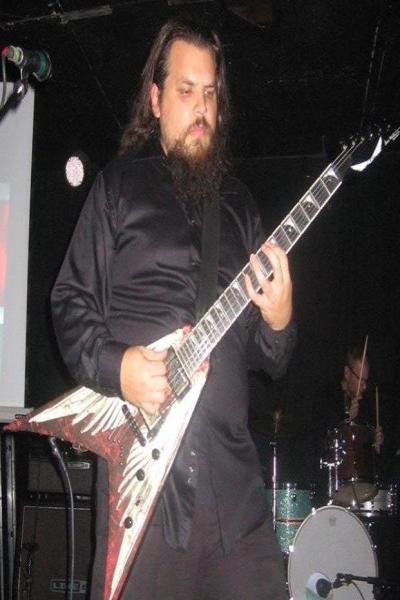
Source: The Reticent Facebook Page
MGM: Jamie King seems to have an ever growing reputation from working with such bands as Between the Buried and Me; how was it working with him?
Chris Hathcock: It was amazing. He was not only energetic and enthusiastic but also very laid back and patient. Being my first time working with him, I didn’t know how involved he wanted to be as a producer or if he’d say, “That sucks, do it better.” In fact, he gave me a lot of space to just explore and do my thing. I came in very prepared for which he expressed a lot of gratitude and so we had ample time to try out some ideas as they came. When recording the hardest to perform song “Funeral For A Firefly”, I had a breakdown. I mean, hardcore sobbing as it was hitting me all at once. I had buried my face into the foam of the booth and just cried until I had to step out to regain my composure. I don’t think that most folks he has worked with lose it two lines into a song but he was so supportive, understanding, and gave me the room to get through it. I’ve already talked with him about the next album (another concept) so I will definitely be doing more work with him in the future.
MGM: What does The Reticent mean to you, and conversely, what should The Reticent mean to the fans?
Chris Hathcock: The Reticent is my diary. It is where I confess many things that I don’t know how or have the means to express in my daily life. As such, I’m uniquely possessive over The Reticent – to listen to my work is to know me in a very intimate way. I don’t know if it is my place to say what meaning it should have to anyone that has enjoyed what I’ve done. I hope that it will function for them in a similar way as it has for me – a conduit through which people can express emotions and perhaps a means for self-reflection. I don’t know that anyone really likes my music enough for it to extend much beyond that.
MGM: Do you have other musical projects that you work on as well?
Chris Hathcock: Well, I compose for schools a fair amount. I have a few commissioned pieces that I am composing now for wind band. Other than that, I’ve jammed a little with some friends notably from another band but nothing is concrete with that yet so we’ll see what else may come. I used to try to restart ISO but I’ve given up on that venture regretfully.
MGM: So by day you are Mr. Hathcock high school band director, and by night The Reticent. Do you feel that both sides of Chris Hathcock reflect on each other in any way?
Chris Hathcock: I don’t really consider it that much. Two sides to the same coin I suppose. Both versions of me are intense people with a real passion for music. The me that is a band director tries to inspire young people to explore their own passion for music and to give them the means to express themselves through music. The me that is a performer seeks to do much the same just perhaps outside of an educational context. It can be challenging to balance both parts of my life. My teaching is the main thing that keeps The Reticent from doing more shows but there are ways around that.
MGM: Prog music is often labeled unemotional, but on the contrary I believe many bands have and bring out a multitude of emotions, including The Reticent. Why do you think Prog music gets such a bad rap?
Chris Hathcock: When prog gets slapped with the unemotional label, I think it is similar to how jazz gets mislabeled as just chaotic noise where they just “make it up.” This is an instance where someone has taken a very insufficient sample size and drew a premature conclusion. Now, to be fair a lot of prog can get a little… full of itself and self-indulgent. I think that the tendency of prog music to descend perhaps more deeply into virtuosity and/or extreme development/repetition of melodic or harmonic motives causes many listeners to check out. There’s a reason popular songs have always been 3.5 minutes long. Prog tends to be more for musical devotees that demand or at least expect more from the performers and compositions. I don’t think there are that many emotions or experiences that can be accurately reduced to 3.5 minutes of verse, chorus, verse, chorus, bridge, chorus. But then again I will listen to 30 minute long symphonies that expand a single moment to something immensely more complex. I think that a lot of prog is in the spirit of Romantic era composers such as Beethoven. Think about how he took a motive so simple in the 5th symphony and developed it into something very intense and emotional. I think plenty of modern prog bands have done very similar things with equally intense and emotional results. But again, how many people listen to Beethoven today for his multitude of emotions? Just as classical instrumental music gets written off by many as boring (which some of it can be but most is amazing) prog often suffers the same fate. I think it comes down to two things in that case: either people have a small sample or it just isn’t to their taste.
MGM: How have you managed to write complex songs that evoke deep feelings within the fans?
Chris Hathcock: Honestly, I’m not sure how to answer that or if it is my place to do so. For the few that have been affected by my music emotionally, I think it has to do with the honesty in it. I mean I’m not particularly great at anything I do – I’m an averageish guitar player, an ok drummer, and I’m not really a great vocalist – but perhaps in that mediocrity the truth at the heart of what I’m trying to say comes out. I have nothing to hide behind. No talent in which to envelope my songs so all I have to go on is the real and raw emotion at the heart of what I do. So when people come to see me play or hear me on a record, I think they can tell that I mean what I am saying – that I am feeling it at that moment. I’ve teared up several times on stage and been close to crying as I’ve sung some songs. Not because they are powerful songs per se but because I am always putting myself in whatever that moment was when I perform it. I feel the pain or loss or heartbreak all over again as I play and sing the words. So more than once I’m sure people have heard my voice quiver and my eyes shut firmly as I’ve fought back some tears on stage. I suppose what evokes the reaction that The Reticent has gotten from some is that lack of facade or pretense. People take that as an invitation to come with me to see what I see.
MGM:Recently there was a post on The Reticent Facebook in response to the Paris attacks. How do your feelings towards all the unrest in the world affect your output with The Reticent? Or does it not have any impact at all.
Chris Hathcock: It affects things more than one might think. Two songs off of “Le Temps…” were about such things. While the concept behind the new album is very autobiographical, the concept that will be behind the next album is actually much more universal but I’ve never heard anyone write about something like that (not that someone hasn’t, I just haven’t heard it). It’s not about Paris or terrorism or anything like that. Something else insidious that has affected many of us and will affect many more.
MGM: One of the most widely known songs The Reticent plays is the cover of the REM track “Losing My Religion.” It truly is one of those defining moments the times I have seen you live. Why cover that song?
Chris Hathcock: The live version certainly seems to be a crowd favorite at the shows. I was shocked to find out the “video” for the song (which is just a static image that H&H Records threw together to promote the album) had past 30,000 views. I’ve always really loved the lyrics to that song. So much poetry, depth, and nuance in them. It was sort of an off hand idea but I thought I could do something different with it – slow it down, open it up, and draw more attention to some of the frustration and sadness in the words. I like covering something that an audience member wouldn’t expect or see coming.
MGM: What’s next for The Reticent? What do you think of the state of Progressive music now and how will The Reticent fit in? Or will the band redefine it and take it to another level?
Chris Hathcock: Well, my hope is that a label with a bit more reach will pick up the new album and release with more of a push so that the music can reach more people. A pair of music videos is in the works so that will be something for folks in the meantime while we wait for the album to get released. Right now, I feel like there is a more prominent audience for progressive music than I recall in years past (that’s just my perspective) which is a great thing. As for how The Reticent fits in, I couldn’t tell you. Time will reveal that to us all I’m sure. I’m not good enough to redefine progressive music but I do want to explore even more and try to find unique ways to tell stories through music and continue to be a voice of honest emotion in this genre.
MGM: Any final thoughts?
Chris Hathcock: Thank you so much for taking the time to ask me these questions. I greatly appreciate it.
